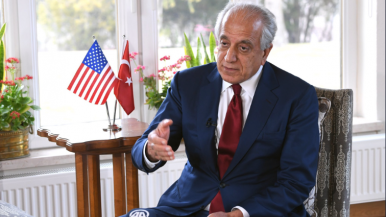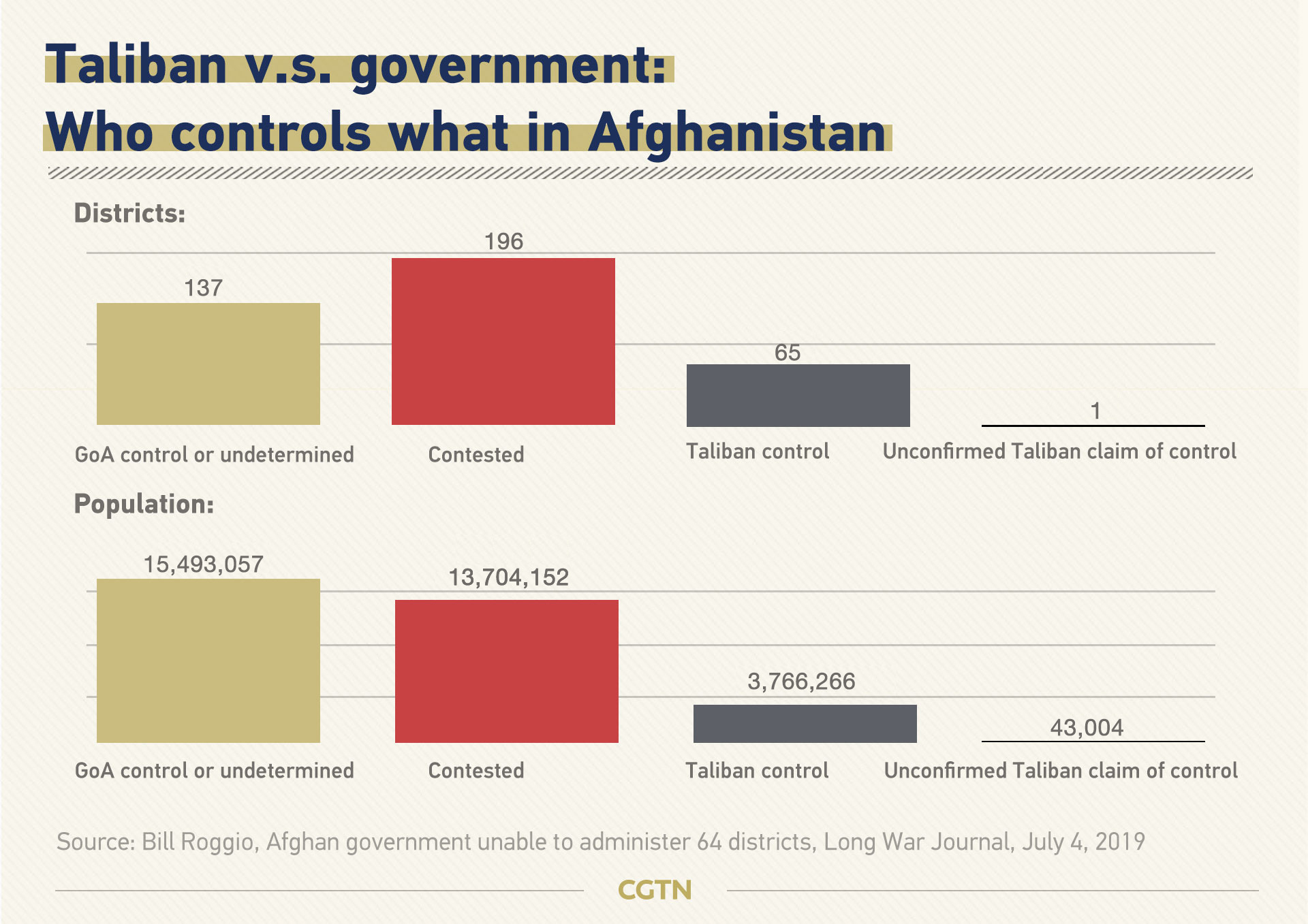
U.S. Special Representative Zalmay Khalilzad during a February 2019 visit to Turkey. /Photo via U.S. State Department
U.S. Special Representative Zalmay Khalilzad during a February 2019 visit to Turkey. /Photo via U.S. State Department
U.S.-Taliban peace talks look on a positive trajectory amid reports that differences over the withdrawal of American troops from Afghanistan had been resolved.
The U.S. special representative for Afghanistan, Zalmay Khalilzad, left the eighth round of the U.S.-Taliban peace talks in Qatar on Tuesday with a tweet saying "excellent progress" had been made. The negotiations had been extended by three days.
Khalilzad, the leading face of the peace talks, did not reveal any specifics however, and the BBC reported that details of an agreement could be announced in Washington.
It remains highly possible that key issues remain unresolved as technical teams continue discussions.
Washington still needs to dive deeper into the details of the proposals made by the Taliban before making concrete concessions, Li Guofu, a Middle East expert at the China Institute of International Studies, told CGTN.
Four key issues frame the ongoing peace talks: The Taliban severing ties with al-Qaeda and other international terrorist groups, the withdrawal of the U.S. and NATO forces, an intra-Afghan dialogue and a permanent ceasefire.
The U.S.-Taliban peace talks would mainly focus on reaching a mutual concession on the first two issues and hopefully pave the way into smoothing the intra-Afghan dialogue in order to establish a long term conciliation process in the war-torn country.
The U.S. domestic situation can also contribute to breaking the years-long deadlock, as the Trump administration has been urging a full retreat from Afghanistan. According to a Washington Post report, the U.S. could reduce the troops deployed in train-and-advise missions in the country from around 14,000 to 8,000-9,000 in exchange for "counterterrorism assurance" from the Taliban.
Intra-Afghan talks
A election will get underway on September 28 in Afghanistan, and the peace talks' impact on the election depends on the practical details of the agreement between the U.S. and the Taliban.
Although the Taliban leadership is firm in ushering the foreign forces out of the country, divisions within the group remain in terms of dealing with the Afghan government. The most extreme scenario would be based on a considerable withdrawal of U.S. troops. "In this case, the election can be postponed again under the considerations of including the Taliban into the electoral system as a legitimate party," Li said, "but under current circumstances, it's unlikely."
UN data shows that the Taliban are responsible for more civilian casualties than any other party, and the violence level in Afghanistan has peaked since May 2017, which is seen as an attempt to win leverage on the negotiating table.

The talks between the U.S. and Taliban delegations in Doha give the Taliban leaderships a lot of validation on the world stage, shaking hands with leaders while diminishing the legitimacy of the Afghan government by excluding them from the process.
Seth Jones, director of CSIS, told the BBC that "the longer the Afghan government is held out of the direct negotiations, the larger the problems I think it encompasses." Until the insurgents sit down with the government, the prospects for a successful settlement are fairly low.
Forming a national unity government in Afghanistan is fraught with difficulty. Afghanistan's experiment in power-sharing in 2014 between presidential candidates, President Ashraf Ghani and Chief Executive Abdullah Abdullah, has proven a failure. Li also dismissed the scenario of establishing an autonomous region controlled by the Taliban. "The Kurdistan Region of Iraq (KRG) is a bad example ahead."
Last month, the Afghan president held a loya jirga, a grand assembly bringing together more than 3,200 participants, including politicians, tribal elders and other prominent figures, to hammer out a shared strategy for negotiations with the Taliban in the future.
Though without confirmation from the U.S., the Taliban announced that differences over the withdrawal of American troops had been resolved, which can cause a drastic shift of power in the region. But after all, the future will be decided by the pending details of the deals for which Afghans have been longing for 18 years. Rushing into a peace deal doesn't ensure peace in the country or the region.